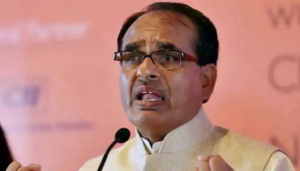New Delhi :- The Indian Agricultural Research Institute (IARI), New Delhi organized a special celebration today in recognition of the conferment of the prestigious Bharat Ratna award to Professor M S Swaminathan, the eminent agricultural scientist and father of the Green Revolution in India.
Dr Himanshu Pathak, Secretary, DARE and DG, ICAR and President, NAAS briefly highlighted the significant achievements of Prof M S Swaminathan and the reflections of his life. He recollected his fond memories of working with Prof M S Swaminathan at CRRI, Cuttack.
Dr. A K Singh, Director, ICAR-IARI and Secretary, NAAS said that it is a matter of great honor and pride for the nation that Professor M S Swaminathan was bestowed with the prestigious Bharat Ratna Award on Feb 9, 2024. He highlighted Professor M S Swaminathan’s lifelong dedication and remarkable contributions to agricultural research, sustainable development, and food security. He stressed how Prof. Swaminathan’s visionary leadership and innovative approach have significantly impacted the agricultural landscape of India and beyond.
Other dignitaries present on the dice were Chairperson, Protection of Plant Varieties and Farmers Rights Authority, Dr T Mohapatra, Chancellor, Central Agricultural University, Imphal Dr R B Singh and Founder Chairman of TAAS Dr R S Paroda. Dr H S Gupta, Dr Panjab Singh, Dr K V Prabhu and many others joined the programme online.
Prof. M.S. Swaminathan, popularly known as the Father of India’s Green Revolution, is credited with saving millions of people from starvation through his landmark work on enhancing productivity and production of wheat and rice crops during the 1960s-70s. He also provided a concept of transforming the “Green Revolution” into an “Evergreen Revolution”. He strongly believed in the power of science to benefit the marginalized and was a vocal proponent of empowering farmers with knowledge and resources. He founded the M S Swaminathan Research Foundation in 1988. He worked there till his last breath to develop and promote strategies for economic growth that directly targeted increased employment of poor farmers, especially women in rural areas. His legacy continues to inspire researchers, policymakers, and advocates worldwide to address the pressing challenges of our time, from climate change to sustainable agriculture.
The celebration featured speeches, presentations, and reflections on Professor M S Swaminathan’s illustrious career and enduring legacy. The dignitaries present on the dice had the opportunity to express their gratitude and appreciation for his invaluable contributions to agriculture, research, and rural development. While he championed the cause of the Green Revolution in the 1960s with the Nobel Laureate, Dr. Norman Borlaug, he subsequently advocated for an Evergreen Revolution for sustainable growth, incorporating all the domains of agriculture. Among several coveted positions that Prof. Swaminathan occupied in India, each with elegance, innovation and creativity, are the Director, IARI (1961-72); Director General, ICAR and the Secretary of the newly formed DARE (1972-79); Agriculture Secretary, Govt. of India (1979); Acting Deputy Chairman and Member, Planning Commission (1980-82). Further, he was the first Indian to become Director General of the International Rice Research Institute, Philippines (1982-88), and his leadership was recognized with the first World Food Prize in 1987. One of his most pivotal roles came in 2004, when he was appointed Chair of the National Commission on Farmers. Prof. Swaminathan was instrumental in the creation of the All-India Agricultural Research Service (ARS). Leveraging his deep understanding of agriculture and extensive engagement with policymakers, Prof. Swaminathan championed the creation of an independent “think tank” dedicated to providing unbiased, knowledge-based, and holistic guidance on agricultural policy, which led to establishment of NAAS in 1990.
Despite his advanced age, Swaminathan remained active in research and advocacy. He persisted in adding to the conversation about rural development, food security, and sustainable agriculture through his writing, public speaking engagements, and attendance at several forums and conferences. Prof. Swaminathan played a key role in the establishment and upkeep of institutions and associations devoted to agricultural development, research, and policy advocacy. His vision and values are still upheld by these institutions. The daughters of Prof M S Swaminathan, namely Dr Nithya, Dr Madhura and Dr Soumya, MSSRF, Chennai had registered their virtual presence in the programme and deliberated on the reflections of his life.
******

